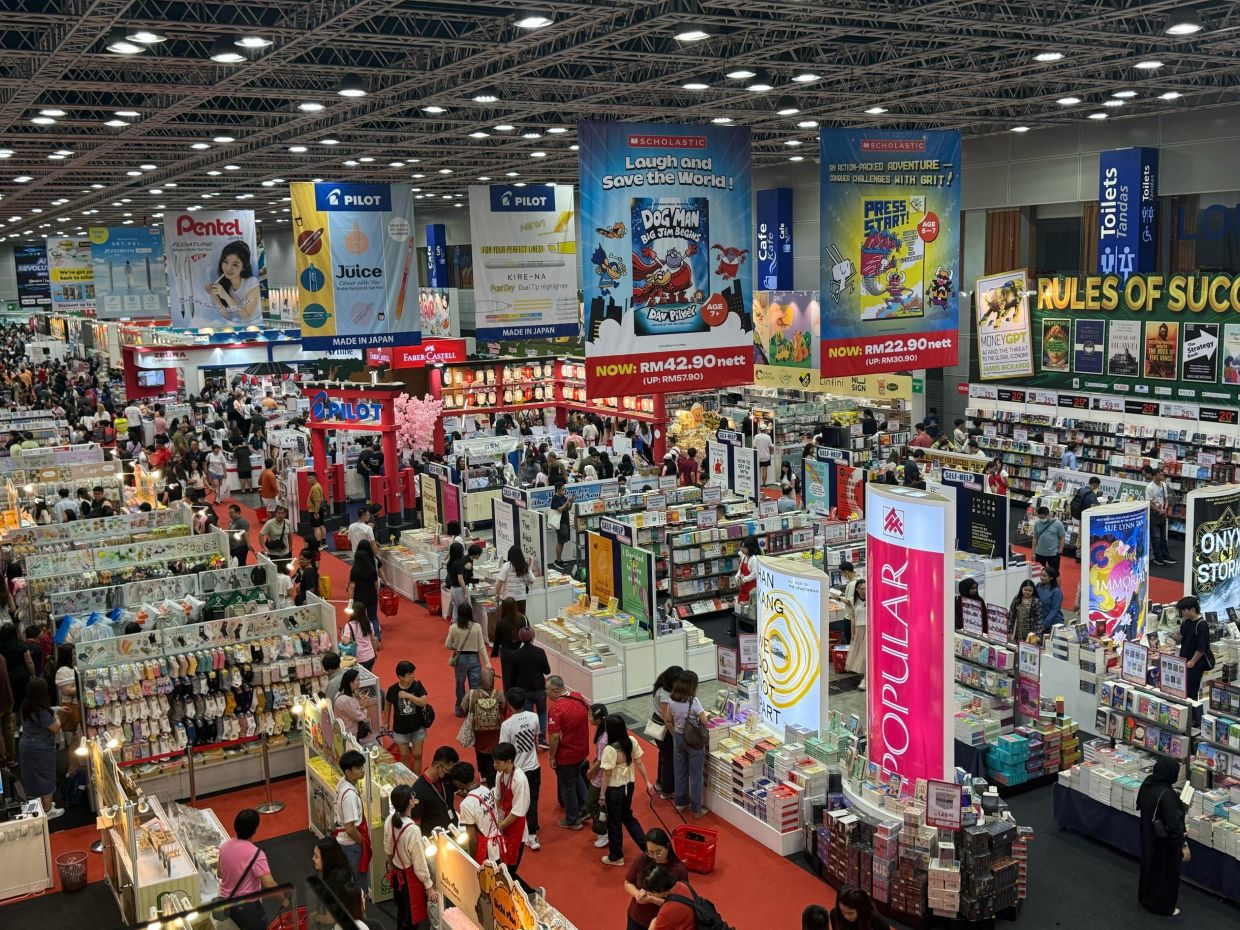
Meeting of minds: (Front row, fourth from right) Yong and staff members of Insap and Bait Al-Amanah holding up posters of the 15th Asian Conference 2024 of the Valdai Discussion Club, which will take place at Royale Chulan Hotel, Kuala Lumpur. — ART CHEN/The Star
KUALA LUMPUR: Asean should work together with “like-minded countries”, such as those in BRICS, amid rapid changes in the global landscape caused by geopolitical shifts, economic crises and climate change, says Bait Al-Amanah founding director Dr Abdul Razak Ahmad.
“We need to foster a modern cooperation that goes beyond conventional security partnerships and geopolitical blocs,” he said.
As such, the 15th Asian Conference 2024 of the Valdai Discussion Club, themed “Malaysia, Russia and Asean: Navigating Emerging Multipolarity”, will address themes reflecting the evolving dynamics of regional and global cooperation.
It is jointly organised by the Valdai Discussion Club, Bait Al-Amanah, Institute of Strategic Analysis and Policy Research (Insap) and Sasakawa Peace Foundation.
The conference will take place here tomorrow and Tuesday.
Bait Al-Amanah is a think-tank that researches policy in various areas such as politics, economics and security.
In an interview, Abdul Razak said the conference would focus on five core themes, namely BRICS, de-dollarisation, an Asean-Russia strategic partnership, “minilateralism” and Russia’s pivot to Asia.
BRICS refer to Brazil, Russia, India, China, South Africa, Iran, Egypt, Ethiopia and the United Arab Emirates.
“It is important to understand the major challenges facing Asean in terms of international politics and regional security, especially when the stability of the Asia Pacific region is pressured by the intensifying rivalry between big global players.
“We also want to look into the potential to strengthen the interaction between Asian countries and Russia to improve regional cooperation,” he said.
Insap chairman Datuk Dr Pamela Yong said the conference would facilitate discussions on creating new avenues to strengthen regional partnerships, particularly between Asean and Russia, as well as other emerging economies.“By facilitating high-level dialogues and strategic exchanges between local and regional experts, the conference allows participants to see how practical partnerships in trade, investment and technology can be explored between Malaysia, Asean, Russia and BRICS.
“It will also allow attendees to see how deeper understanding and trust between Asean and Russia, which is critical for strengthening long-term partnerships, can be explored.
“By sharing perspectives and addressing mutual concerns, the conference encourages the development of a new economic and political framework that is inclusive, sustainable and conducive,” she said.
She also said the conference’s agenda could help address rising concerns about global issues such as supply chain uncertainties and regional geopolitical tensions.
“For instance, our sessions on de-dollarisation and financial diversification will delve into strategies for building resilient financial systems and exploring alternative financial architectures via regional economic frameworks to mitigate the vulnerabilities in global trade.
“The exploration of practical cooperation between Asean and BRICS could also help strengthen regional supply chain integration.
“With Malaysia set to assume Asean chairmanship next year, it is in a unique position to leverage its role as a key bridge between Asean and the Global South, particularly as the region continues to experience rapid economic growth and increasing geopolitical influence,” she added.
The panel sessions and keynote addresses on the first day will be livestreamed on Insap’s Facebook page at www.facebook.com/share/p/18MkdiDtWd/
For more information, visit www.instagram.com/bait. alamanah or www.instagram.com/insap_malaysia











































